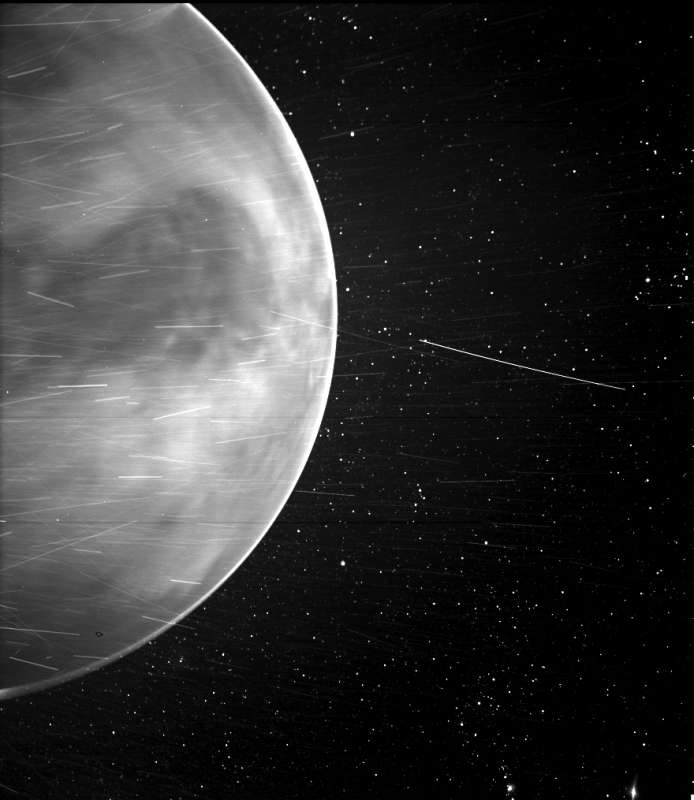A Venus Flyby

Explanation:
On a mission
to explore the inner heliosphere and solar corona,
on July 11, 2020
the Wide-field Imager on board NASA's
Parker Solar Probe
captured
this
stunning view
of the nightside of Venus at distance of
about 12,400 kilometers (7,693 miles).
The spacecraft was making the third of seven gravity-assist
flybys
of the inner planet.
The gravity-asssist flybys are designed to
use the approach
to Venus to help the probe alter its orbit to
ultimately come within 6 million kilometers (4 million miles)
of the solar surface in late 2025.
A surprising image, the side-looking camera seems to peer through
the clouds to show a dark feature near the center
known as Aphrodite Terra,
the largest highland region on
the
Venusian surface.
The bright rim at the edge of the planet is nightglow likely emitted by excited
oxygen atoms recombining into molecules in the upper reaches of the
atmosphere.
Bright streaks and blemishes throughout the image are likely due to
energetic charged particles, and dust near the camera reflecting
sunlight.
Skygazers from planet Earth
probably recognize the familiar stars of Orion's belt and sword
at lower right.
Authors & editors:
Robert Nemiroff
(MTU) &
Jerry Bonnell
(USRA)
NASA Web Site Statements, Warnings,
and Disclaimers
NASA Official: Jay Norris.
Specific
rights apply.
A service of:
LHEA at
NASA /
GSFC
& Michigan Tech. U.

